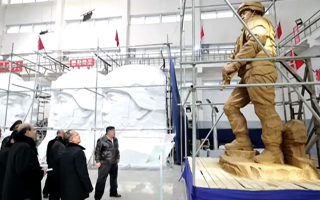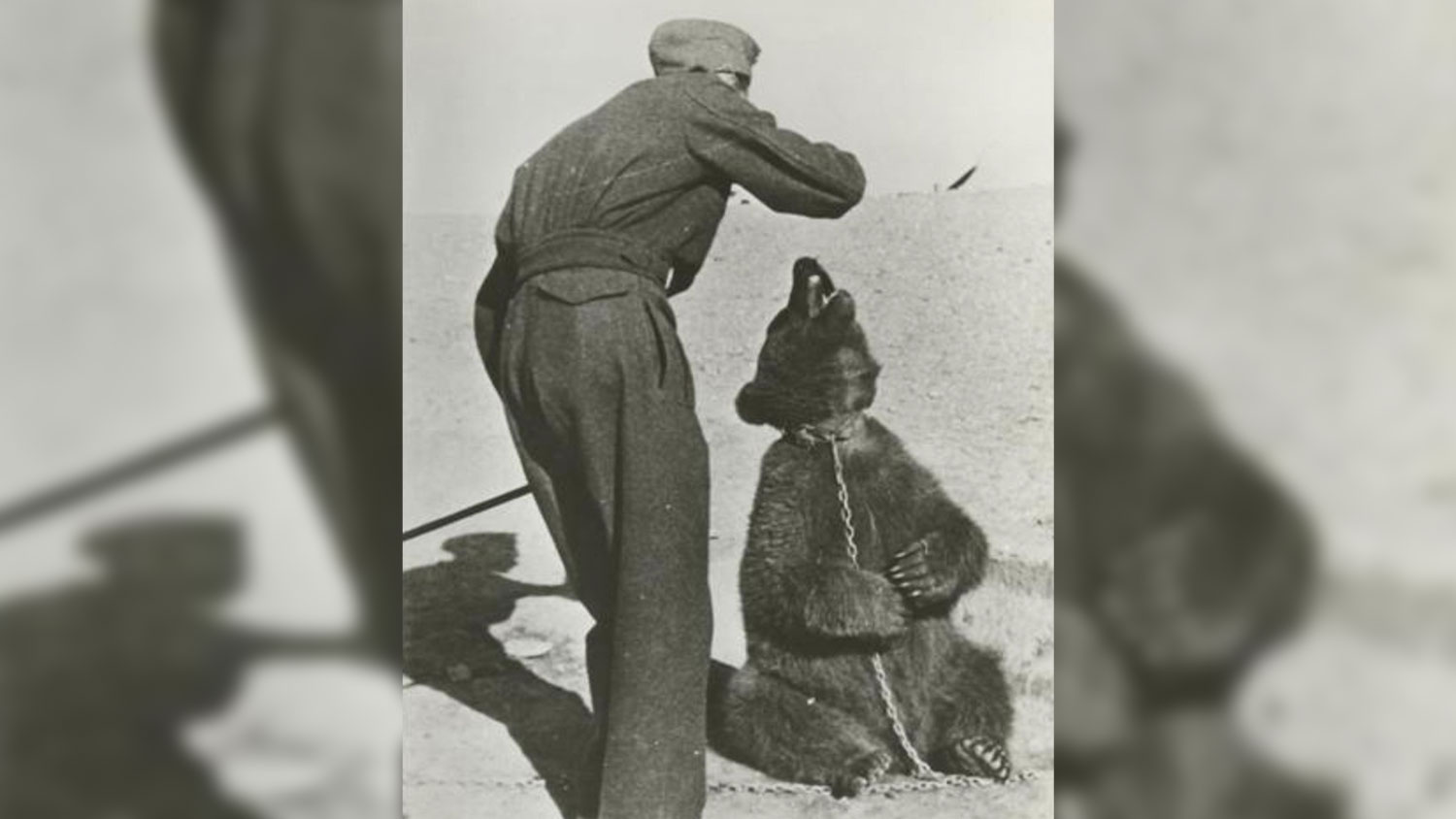
Wojtek: The bear who ate cigarettes and carried ammo for Polish troops in WW2

The story of Wojtek the orphaned bear who carried ammunition at the Battle of Monte Cassino, drank beer and ate cigarettes, exists in a hinterland between truth and myth.
When people discover that during the Second World War, soldiers of the 2nd Polish Corps, commanded by General Władysław Anders, made a Syrian brown bear their mascot and eventually a corporal, many cannot quite believe what they've heard.
But it's all true. In the absence of their loved ones, Wojtek the bear became a surrogate child or sibling of sorts for the Polish soldiers who were so far from home.
There is Pathé video footage of Wojtek playfully wrestling with Polish soldiers and photographs of him eating out of mess tins and splashing about in the sea alongside his human counterparts.
Stories are told of Wojtek drinking beer, while others think the bottles were filled with water or condensed milk, as alcohol was a valuable commodity during the Second World War.
The relationship between the Syrian bear and the Polish soldiers who rescued him has been described by many as incredibly close.
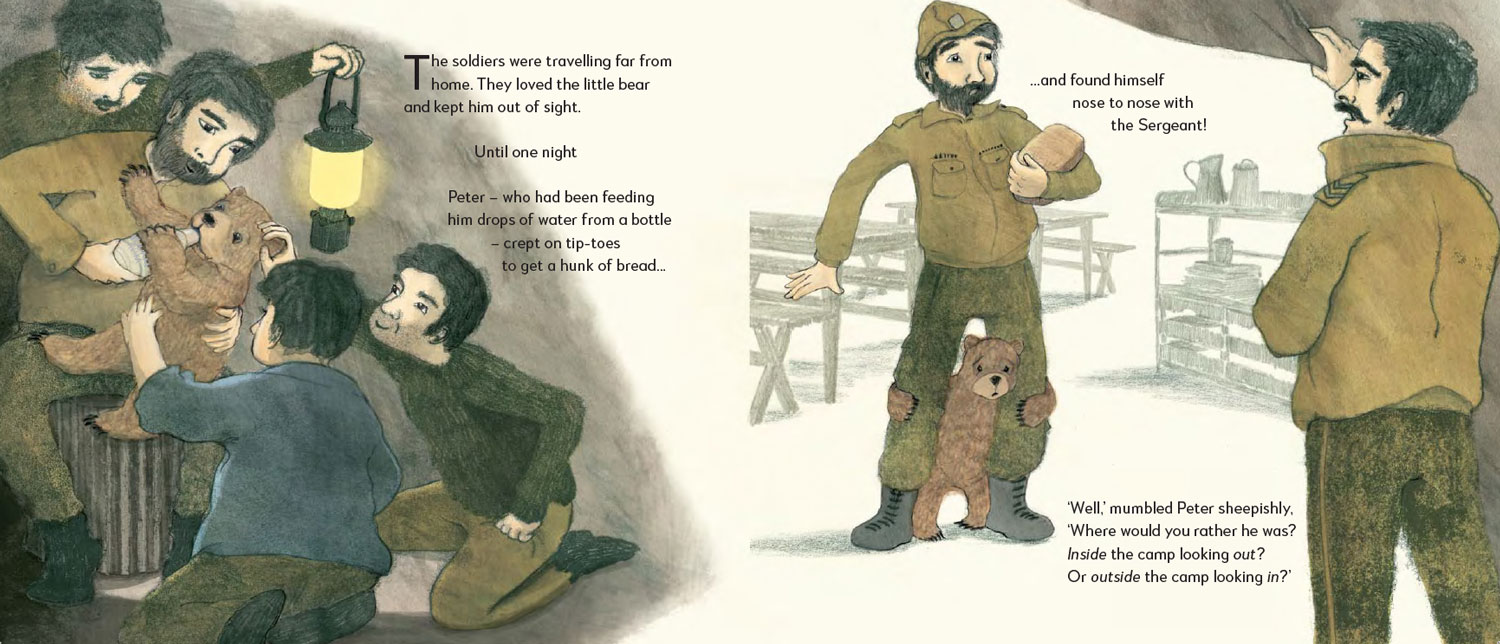
Alan Pollock, playwright and author of the children's book The Bear Who Went To War, which was turned into a play, described as "War Horse but with a bear", believes that at the core of this story is a universal truth – everyone needs to love and be loved.
He said: "All of these men are cut off from their own families.
"They don't know what's happened to their mothers, their wives, their sisters, their children and they find this little bear cub who has been stolen by hunters and they buy it and it becomes their child.
"And the bear grows up thinking he's a man."
Wojtek's remarkable story begins in April 1942 when he is discovered in Iran by several Polish prisoners of war being transported from a Siberian labour camp to Egypt.
The bear, who was gifted to the men of the 22nd Artillery Supply Company, would end up boosting the morale of those who loved him and giving hope to people he'd never met.
After one of the last stage performances of The Bear Who Went To War, Mr Pollock was approached by a tearful Polish lady whose story was so powerful it moved him to tears.
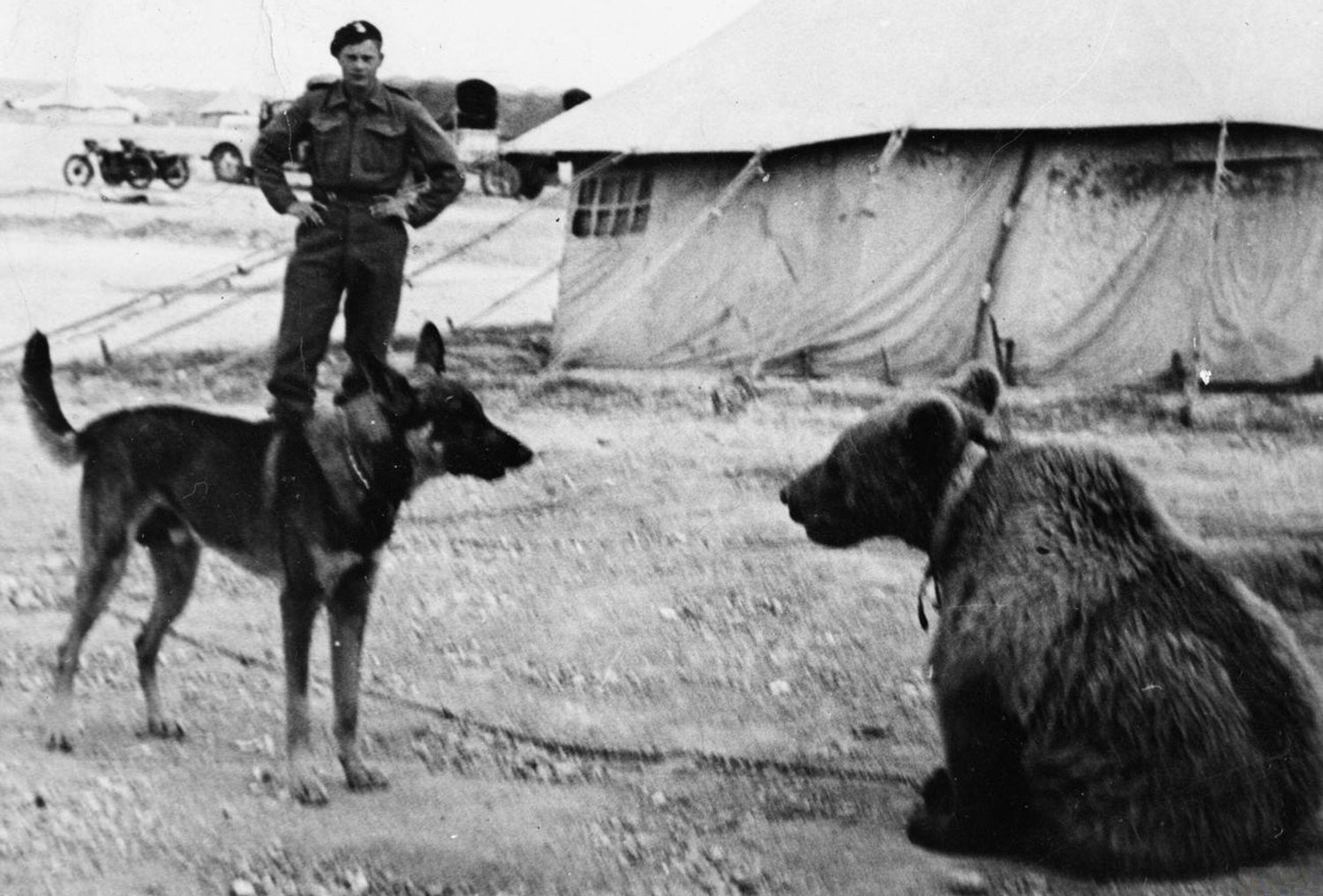
He said: "Her father ended up being part of a Polish resistance against the Soviet occupation and at one point he had been absolutely desolate and suicidal and then around about 1944, a friend told him the story of Wojtek the bear.
"And the friend said to him, 'Don't give up hope. Look, even the animals are fighting'.
"And apparently this emboldened the father of this woman to carry on fighting."
Once fully grown, Wojtek was more than capable of killing anyone but those who spent time with him saw him as a gentle giant, even allowing him to sleep in the same tent as them.
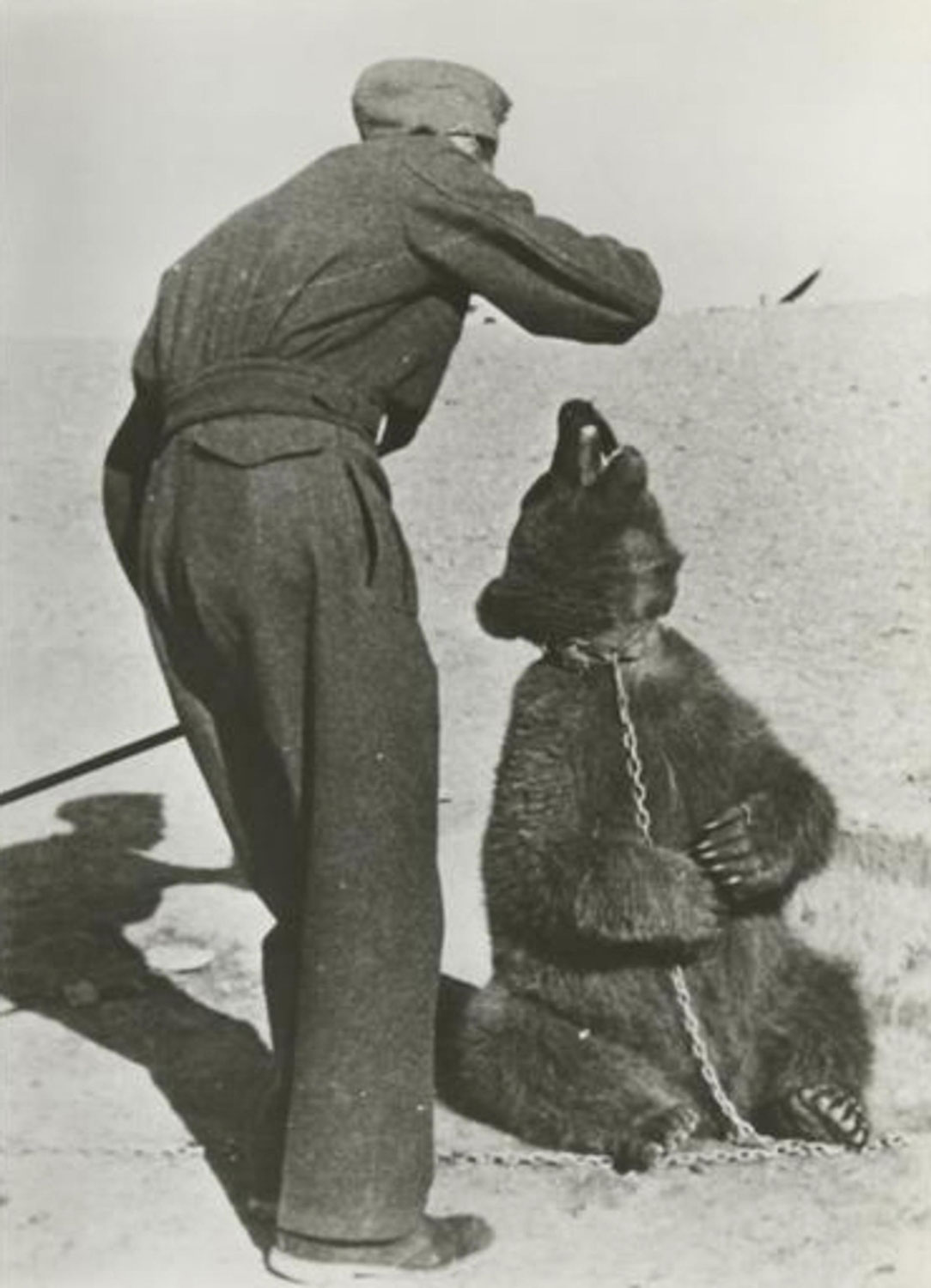
After the men of Anders' Army received orders to head to Italy via sea, they were met with a problem – Wojtek wasn't allowed to travel with them.
However, they weren't ready to say goodbye to Wojtek.
Mr Pollock said: "The men say, well, the bear goes with us or none of us do. We will mutiny."
And that's how a bear became a soldier.
After being given the rank of Private, a service number and pay book, Wojtek made his way to Italy where his legendary status would be set in stone.
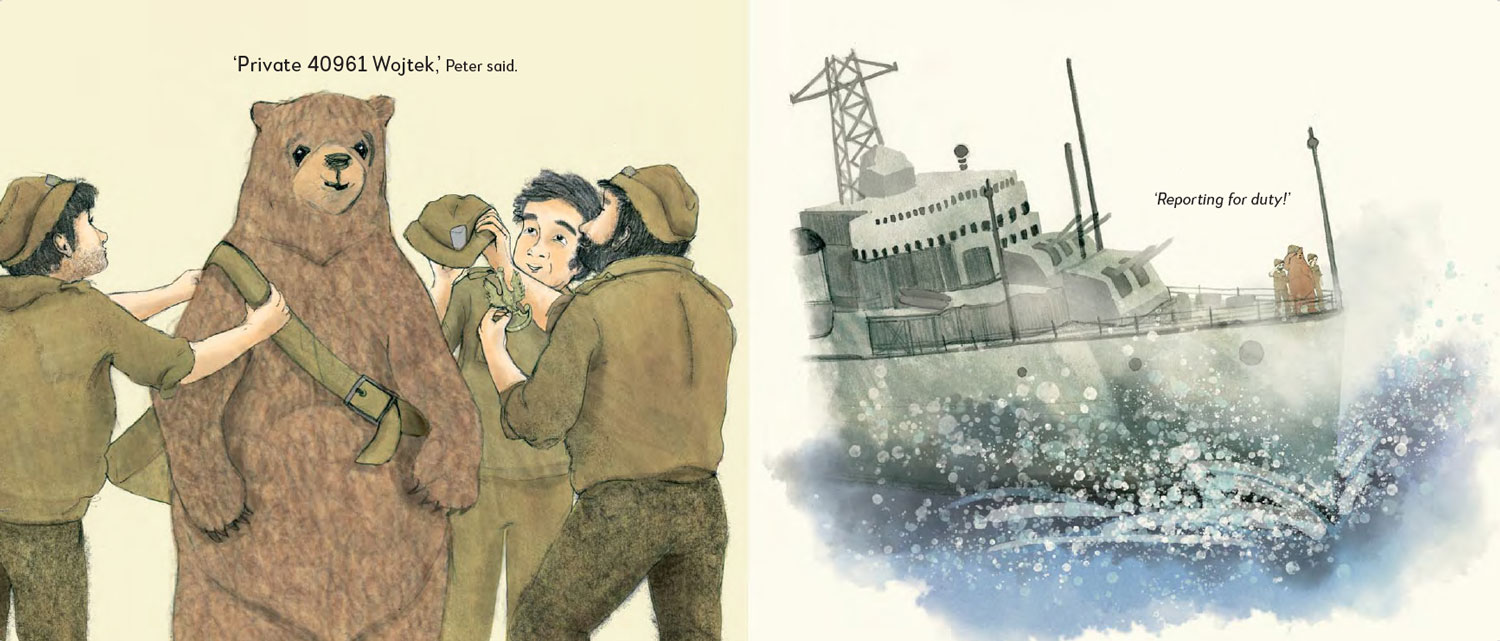
Mr Pollock said: "The story is universal and has resonance. It's not just an adventure story; it's a family story.
"It's men without women and there's this incredible relationship with this amazing creature.
"Another bear might have behaved in a completely different way, but this did all the things that we say it did."
The Battle of Monte Cassino
One of the most unbelievable parts of this story is the role Wojtek played during the bloodiest battle of the Italian Campaign.
Mr Pollock said: "There are multiple witness statements saying that at the Battle of Monte Cassino itself, he did carry ammunition crates."
Perhaps imitating what he saw his human counterparts do, Wojtek would stand upright on his hind legs and lift heavy crates of ammunition to where it was needed, leaving Allied soldiers shocked at the sight.
After four deadly months, the brutal battle ended on 18 May 1944 after 2nd Polish Corps' soldiers forged ahead and reached the top of Monte Cassino where they were faced with a demolished monastery.
Following the battle, Private Wojtek was promoted to corporal and became the official symbol of 22nd Artillery Supply Company with an image of him carrying an artillery shell in his arms.
Mr Pollock said: "The other great thing is he absolutely loved riding in the front of trucks and people would fall into ditches out of sheer surprise or terror.
"There's a campaign medal of him carrying the shell. It's a badge of great pride.
"Every Polish child knows this story."
Was Wojtek scared during the Battle Of Monte Cassino?
Mr Pollock doesn't think so, and said: "I don't think he was scared, he was curious.
"Obviously, bears love food so he was always getting stuck halfway through windows, chasing chickens if there was a hint of food available."
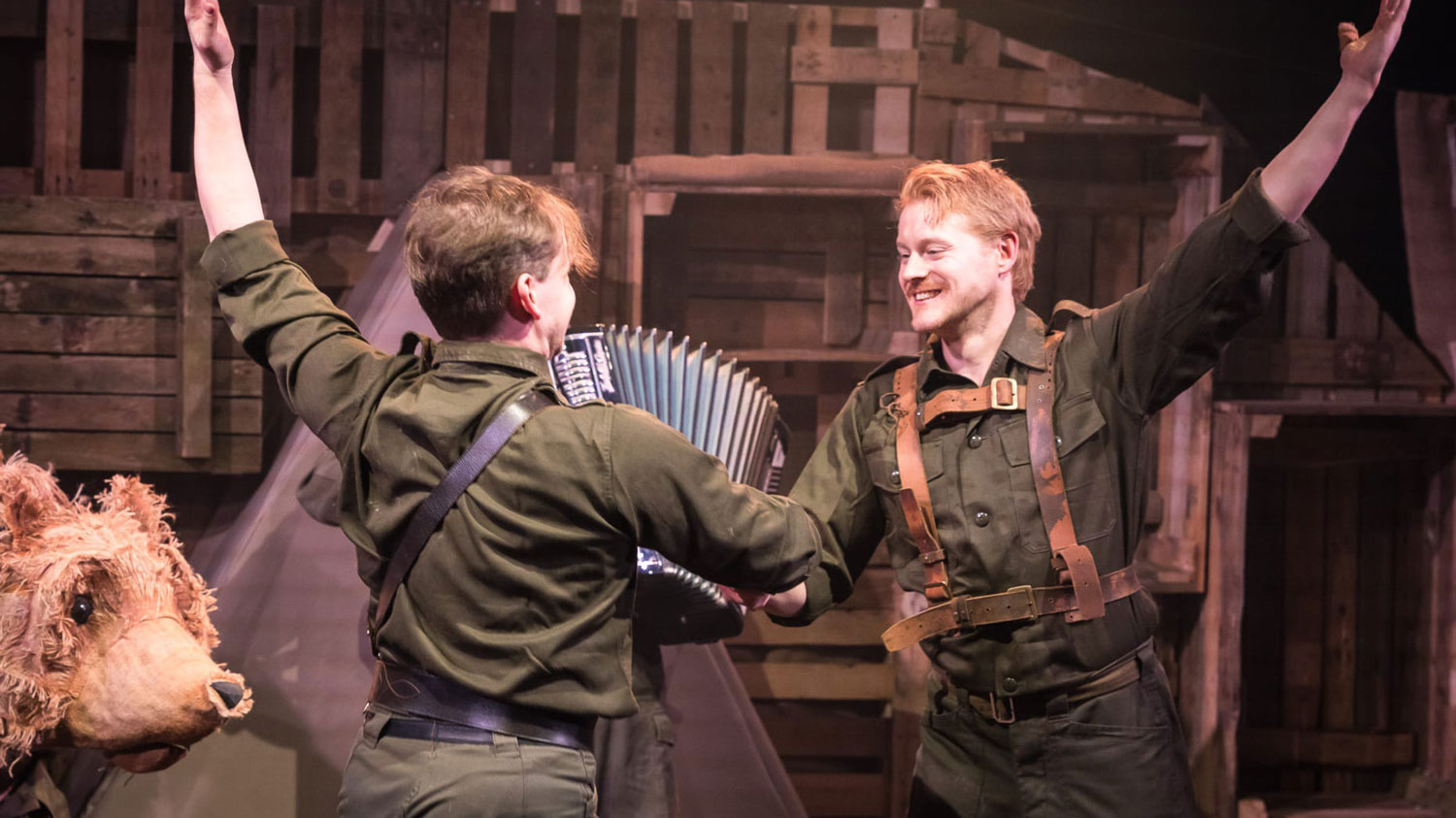
Edinburgh Zoo
After the Second World War, Poland fell under Communist control, meaning that most Polish troops who fought alongside the British could not return to their homeland.
Initially, Wojtek and his soldier friends stayed at the former RAF base at Winfield Aerodrome in the Scottish borders.
However, on 15 November 1947, Wojtek found a new permanent home at Edinburgh Zoo which, Mr Pollock believes, didn't suit the soldier bear.
He said: "Once [the soldiers are] demobbed and doing jobs in civvy street there's nowhere for the bear to go, so he ends up in the zoo and he lived till 1963 and I really think he was very unhappy."
Wojtek, the soldier bear who ate cigarettes and helped support soldiers during the Battle of Monte Cassino, had brought so much joy to those he lived with during the Second World War.
The late Ludwik Jaszczur, a former Polish soldier who served alongside Wojtek and who ran the Leatherwork on Lauriston Street in Edinburgh until he retired at the age of 94, said: "I'll tell you the truth, Wojtek helped us to win the Second World War."
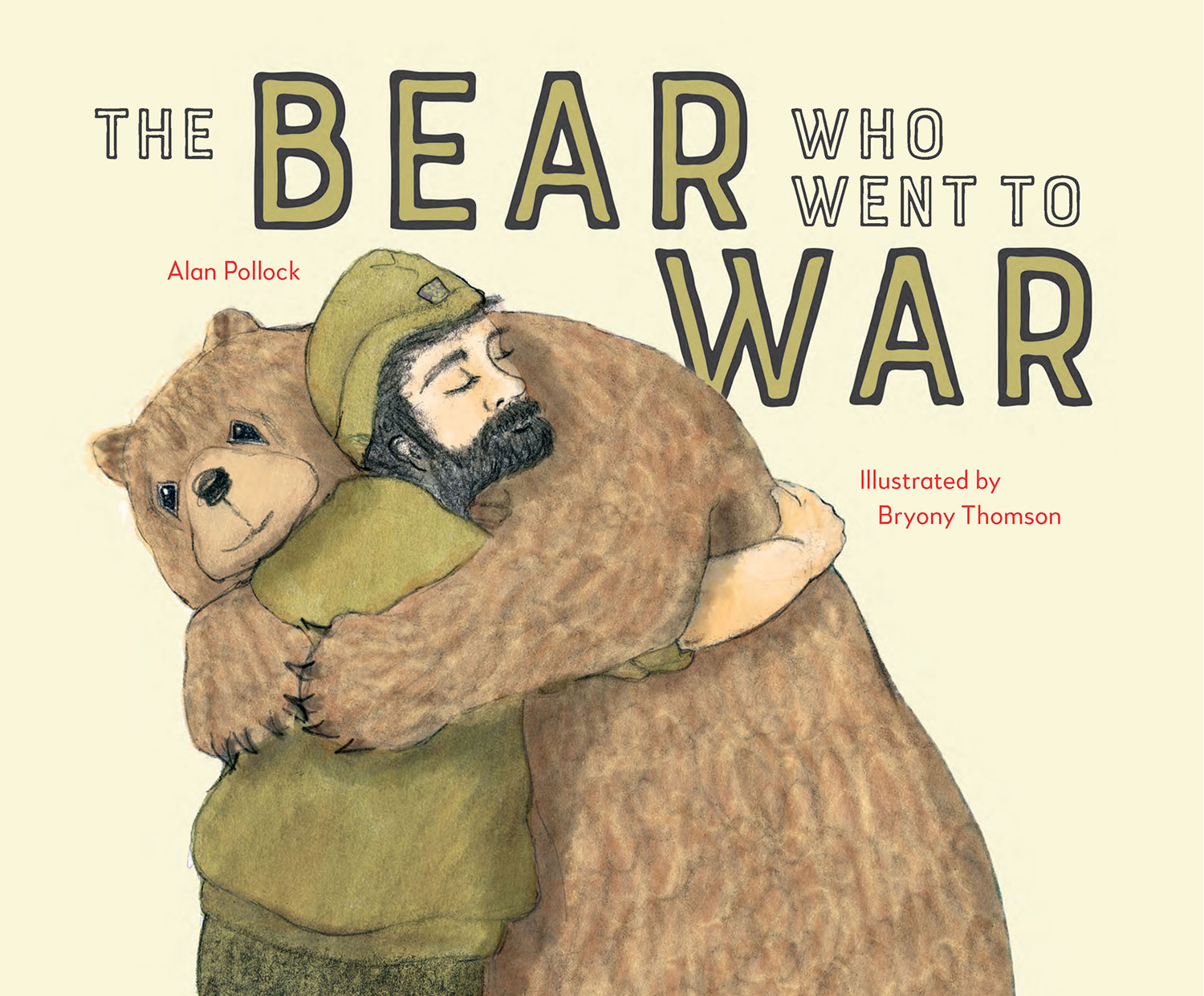
The Bear Who Went To War by Alan Pollock is available from oldbarnbooks.com. Use the code BEAR at checkout for a 15% discount (and free postage) when ordering from the Old Barn Books website.




